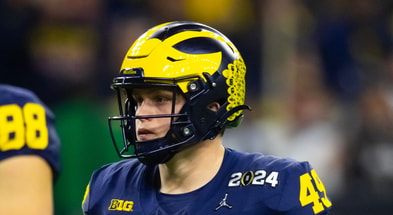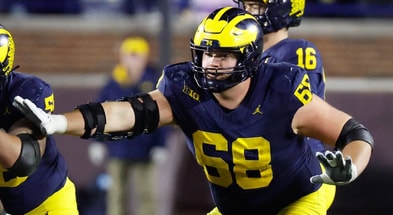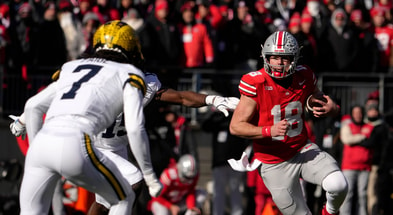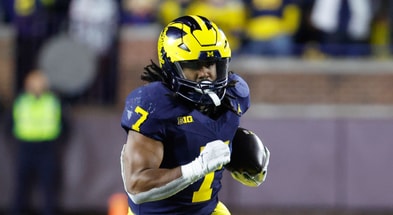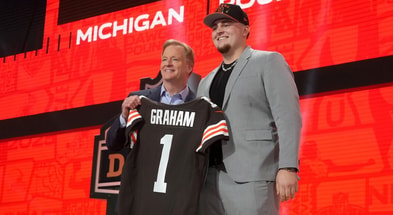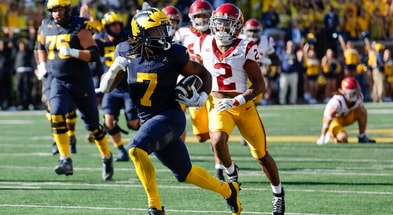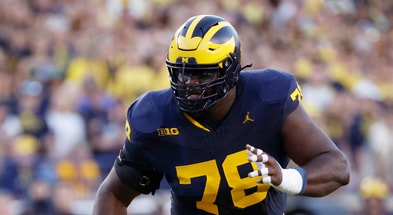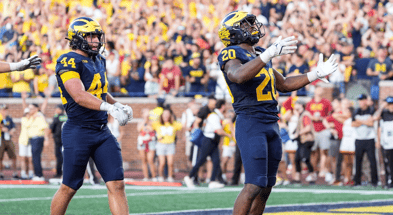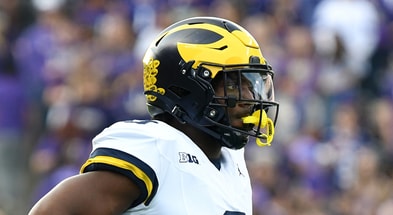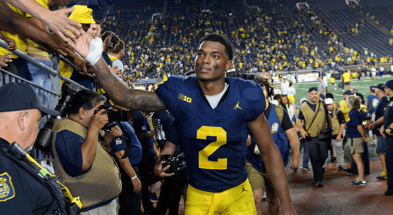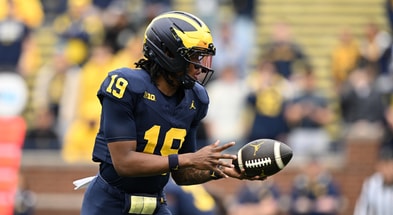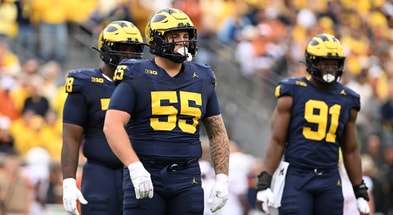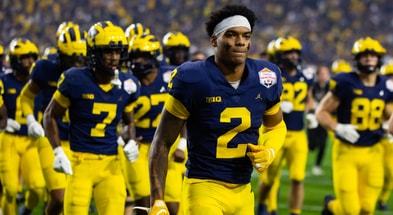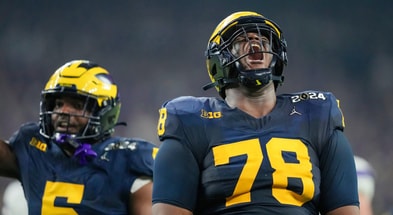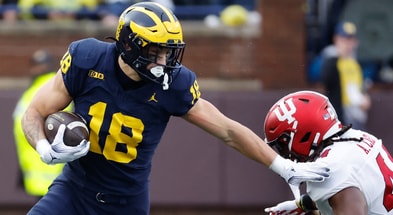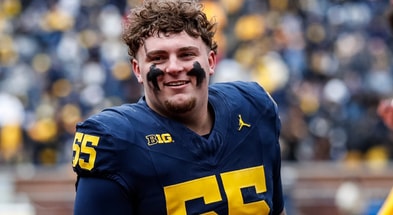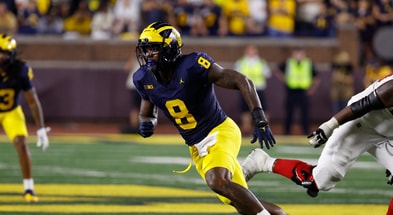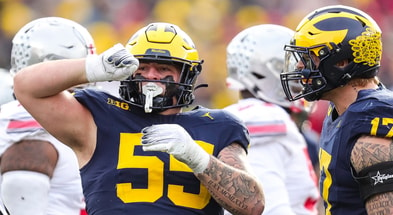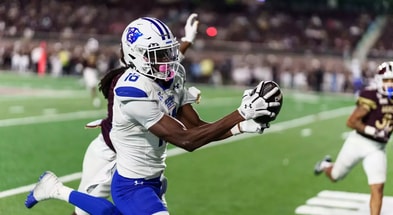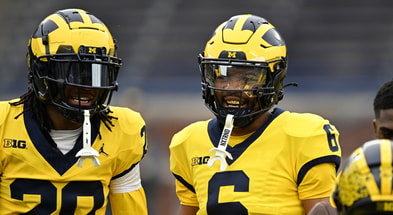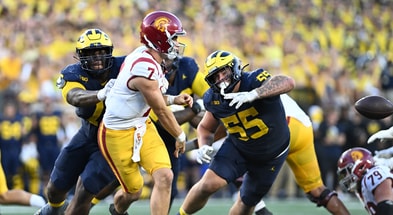GM Sean Magee discusses Michigan's culture being 'competitive edge' in recruiting, player retention

Michigan Wolverines football general manager Sean Magee talks to friends in the NFL, where he worked with the Chicago Bears from 2022-23, who hold the belief that the new environment of college football is “pretty straightforward and easy.” But Magee knows, and explains to them, that it’s nothing of the sort.
In an interview with Jon Jansen on the ‘In The Trenches’ podcast, Magee explained the differences between the NFL — which has structured draft and free agency processes — and college football, which has undergone many changes in recent seasons and has more coming with the House v. NCAA case expected to be approved April 7.
While Michigan is competitive in the NIL space, due in large part to the Champions Circle collective working directly with the program, and that revenue sharing is expected to be on its way beginning in July, the decisions of high school and transfer recruits aren’t based solely on compensation.
“In the NFL, when you’re a free agent and the other team offers you the most money, you’re going,” Magee said. “There’s no decision. That’s the decision. They’ve offered the most.
“That isn’t the college environment yet. Now, it could be, right? But the individual still has their own agency on where they decided to go, so it’s not just a transactional environment of Team A offered X, which is higher than Team B. This is still a decision based on relationships, based on wants, based on needs, desires of … maybe it’s geographic, maybe it’s a family push, whatever it may be.”
An unnamed Michigan staffer told The Athletic‘s Bruce Feldman before the Wolverines beat Ohio State in 2022 that they couldn’t “out-personnel” Ohio State, but they could “out-physical” and “out-culture” them. The Wolverines have beaten the Buckeyes four straight times and won three Big Ten titles and a national championship since 2021, proving that culture can be a differentiator. Magee, second-year head coach Sherrone Moore and Co. are steadfast that culture can be the difference in player acquisition, as well.
“Players still have the agency to decide where they want to go,” Magee continued. “It’s not just taking the highest offer. What I believe our competitive advantage can be going forward — the culture that we developed here, that started years and years ago, that obviously peaked at a national championship level.
“Was that 2023 national championship team the most talented in the country? Maybe. Certainly, extraordinarily talented guys. But it was the best team in America with the best culture in America. That can be our competitive advantage in this environment today.”
That’s not to say Michigan isn’t providing high-level compensation for its players. It’s just also offering an elite education and the opportunity to play for the winningest football program of all time.
“The level of compensation that all individuals now have access to is phenomenal,” the Michigan general manager said. “It’s great. Across the board — not just here at Michigan but everywhere else across college football. This was a long time coming, the ability to be compensated for your name, image and likeness.
“Our hope is that at the end of the journey here at Michigan, whatever these numbers are, hopefully these are rounding errors for your later career. Could the potential to earn more in the short term at another place exist? Absolutely. Could the long-term value of the experience, the development, everything that you’re gonna have here … and again, the Michigan degree means something, a tremendous amount.
“I tell individuals all the time, we’re the rare institution in the country that plays football and our athletic program is at the highest level, we’re at the highest level of academic credibility and as an academic institution. We’re a unicorn of an institution. And our market, who we sell best to, who hears this pitch, who recognizes what that value is, that’s how we’ve built this thing, of finding those right fits.
Top 10
- 1New
Shilo Sanders
Lands with NFL team
- 2
Picks by Conference
The final tally in NFL Draft
- 3Trending
Mel Kiper
Eviscerates NFL: 'Clueless'
- 4
D.J. Uiagalelei
Signs NFL free agent deal
- 5Hot
Quinn Ewers drafted
Texas QB off the board
Get the On3 Top 10 to your inbox every morning
By clicking "Subscribe to Newsletter", I agree to On3's Privacy Notice, Terms, and use of my personal information described therein.
“This is not just a talent accumulation environment. This is finding the right fits and building a championship team based on that.”
How Michigan can fend off poach attempts
While college programs aren’t allowed to have communication with players at other institutions until they enter the transfer portal, tampering is rampant across the sport. As a result, coaches have become paranoid about seeing players get poached, to the point that Nebraska has become the next to not hold a spring game so not to display their talent to the rest of the college football world.
“One of the biggest challenges is, for example, guys on your roster that are now starters, that may be better than starters at 75 other schools in college football right now,” Magee explained. “They’re essentially being tried to be poached all the time, from these other institutions, other places — some covertly and some not so covertly.
“How do you keep the semblance of depth, how do you keep the semblance of a developmental program, of keeping guys on your roster and at your institution? And I truly believe, and Coach Moore believes, and what his vision is and what we’re executing as a staff on a daily basis: It’s our culture. It’s the buy-in we receive from the authentic relationships and authentic value.”
Michigan isn’t completely immune from having players get poached, but it’s working on all angles of making sure the risks are mitigated.
“I’m a great believer in the axiom that your culture — in any organization — is your immune system to handle outside threats, adversity, anything else, “Magee said. “So, of course, that’s always going to be present, but hopefully we can rely and dig deep on what we’re trying to instill and build here, to defend against any of those other notions.
“I think that when programs are worried about that, there are probably other issues … maybe known or unknown to fans and the public in general.
“But this is a different environment. There’s no sense in arguing about what we used to have or what was once in place. Those that will do exceptionally well and those that have done exceptionally well in this changing environment are those that have been willing to adapt and be able to see around corners to what’s coming next.”

